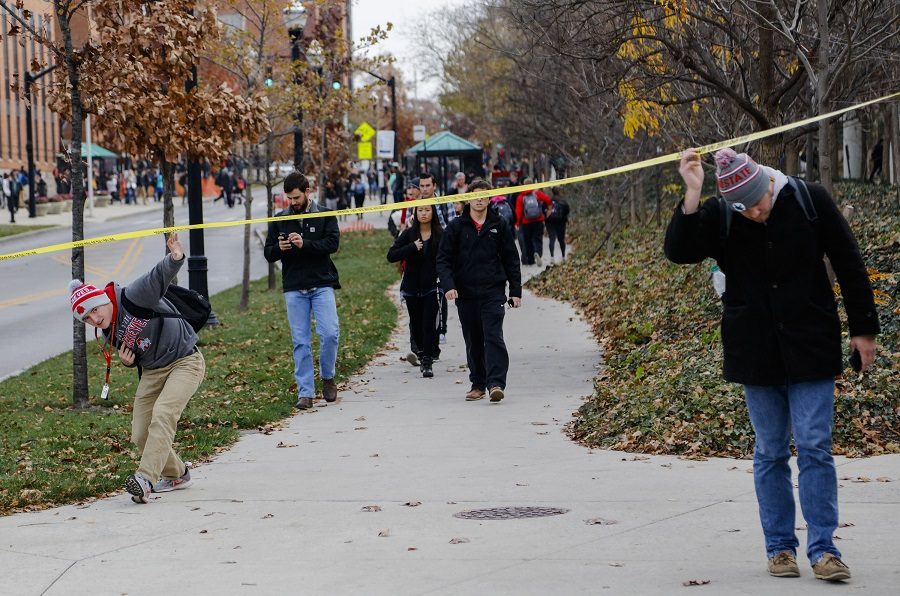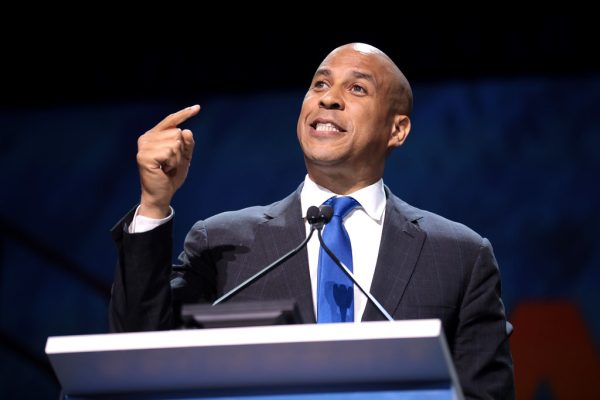OSU attack impacts beyond campus
Concealed carry on college campuses, immigration polices comes to forefront
The attack at Ohio State University has brought to the forefront the issue of concealed carry and immigration policies. Currently, Ohio does not allow concealed carry on college campuses, but this may change in the near future. Meanwhile, president-elect Donald Trump visited Columbus on December 8 to talk to victims of the attack as well as discuss the issues with immigration policies which he believes allowed the attack to happen.
The attack of 11 people on the Ohio State University (OSU) campus has increased interest in arming students and staff. Ohio is one of 18 states that prohibits concealed carry on college campuses. Kentucky and Indiana allow universities to decide whether to allow or ban concealed carry.
The proposal from Lebanon representative Ron Maag would allow those with licenses to carry concealed handguns on college campuses if university officials approve. Lawmakers could vote on this in the coming weeks.
“When I am at Ohio State, I cannot keep myself safe. If someone attacks me with a butcher knife or an AK-47, I’m supposed to run away, throw things at them, or maybe hide under a desk and pray.
“Think about the terror you would experience if that was you,” said Jonathan Beshears, an OSU student, in a testimony before lawmakers, according to Cincinnati.com.
However, opponents to expanded concealed carry say that more guns might have complicated the situation at OSU.
“This officer showed up, he was able to identify the source of the threat quickly because there weren’t other people around with superfluous handguns,” said Rev. Margaret Leidheiser-Stoddard, a member of the Ohio chapter of Moms Demand Action for Gun Sense in America to lawmakers, according to Cincinnati.com.
OSU student Nathan Schumacher, who watched from his dormitory room window as police swarmed his campus, said that he does not want concealed guns on campus, even though he has owned firearms for years.
“A Good Samaritan with a gun looks a lot like an assailant with a gun,” Schumacher said to USA Today.
Even if Maag’s bill is passed, it is not clear whether OSU officials would allow concealed handguns on campus. They have long opposed concealed weapons on campus.
Meanwhile, president-elect Donald Trump traveled on December 8 to Columbus to meet privately with victims of the attack at OSU.
Following the attack, Trump had tweeted that Abdul Razak Ali Artan, a legal Somali resident in the U.S., should not have been in the country.
On December 1, at the first stop of “USA Thank You Tour” in Cincinnati, Trump said that attack was a “tragic reminder” of lax immigration policies that fail to screen out potential terrorists.
“We will do everything in our power to keep the scourge of terrorism out of our country. People are pouring in from regions of the Middle East. We have no idea who they are, where they are, what they’re thinking.
“And we’re going to stop that dead cold flat. You just take a good look at what just happened in your state,” Trump said to The Columbus Dispatch.
Your donation will support the student journalists of Sycamore High School. Your contribution will allow us to purchase equipment and cover our annual website hosting costs.







